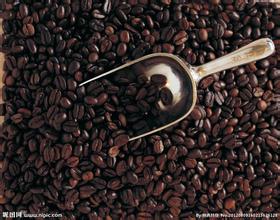Flavor description of Kenyan Coffee varieties Grinding scale production area
Flavor description of Kenyan Coffee varieties Grinding scale production area
Aromatic, full-bodied, with fruit flavor, taste rich and perfect. Kenyan coffee has a wonderful fruit flavor, tastes like BlackBerry and grapefruit, and is a favorite of many coffee gluttons. This coffee has an excellent medium purity, crisp and refreshing taste. It has a fresh flavor and is most suitable for drinking iced coffee in summer. When tasting this coffee, if it is paired with sour fruits such as grapefruit, it will certainly give me the best coffee experience. "not much like coffee, but a bit like fruit tea" is the common feeling of many people about this kind of shallow roasted Kenyan coffee. In addition to its obvious and fascinating fruit acid, Kenyan coffee is mostly from small coffee farmers and is grown in different environments in Ethiopia, the origin of Arabica coffee trees in Kenya's northern neighbor, but it was not until the beginning of the 20th century that it began to engage in coffee cultivation. Missionaries introduced Arabica trees from Yemen in the 19th century, but did not plant them in large quantities, until 1893, when Brazil's ancient bourbon coffee seeds were introduced. Coffee is cultivated on a large scale, that is to say, Kenyan coffee is of Brazilian origin, and the taste of Kenyan beans is very different from that of Brazilian beans due to differences in water, climate and handling. Brazilian coffee is planted at a low altitude, with soft texture and no obvious sour taste. In contrast, Kenyan coffee trees are mainly concentrated on the slopes near Mount Kenya, about 4 to 6500 feet above sea level, which is suitable for coffee beans to develop their flavor, because the mountain temperature is lower and the growth is slower, and the aromatic components of coffee beans are fully developed. the acidity of the fruit is more obvious and the texture is harder. In addition, Kenya was an early British colony, and the British had established a set of perfect cultivation and quality control system. After the independence of Kenya, the coffee industry built on the existing foundation.
Tasting suggestion: Kenya coffee tastes so unique that there is almost no similar coffee. However, it is still worth comparing it to Ethiopia Stammer Coffee. Taste the African acidity and citrus aromas in each kind of coffee. Kenyan coffee is characterized by a distinctive fruity aroma. Try to find this flavor in the coffee and pay attention to how it feels in the mouth. One of the most common fruit aromas is citrus.
Unlike most countries of origin, Kenya has a formal coffee market organization that reviews and rates each batch of coffee before it is sold at auction.
Starbucks does not buy coffee at auction; instead, our suppliers buy the coffee they think Starbucks will like and send samples to Starbucks. Political conditions, drought and the cultivation of new high-yield coffee trees have made Starbucks still interested in Kenya as a coffee supplier.
Starbucks mainly buys coffee based on its taste, which is why we don't specify a Kenyan grade (such as "AA" or "A"). These grades only represent the size of coffee beans.
Anecdotes:
The Kenyan Plateau is one of the most important agricultural producing areas in Africa, and glaciers have been found on Mount Kenya, the second largest peak in Africa. The unique geographic conditions are very suitable for wildlife, so they are also of great scientific and economic value.
Agricultural products include tea, coffee, cotton, wheat, sugar, fruits, vegetables, dairy products, beef, pork, poultry and eggs.

Important Notice :
前街咖啡 FrontStreet Coffee has moved to new addredd:
FrontStreet Coffee Address: 315,Donghua East Road,GuangZhou
Tel:020 38364473
- Prev

Picking and handling of coffee-Brazilian coffee bean processing
Picking and handling of coffee-Brazilian coffee beans are treated in Yunnan, which is mainly done through natural fermentation. The term fermentation is not 100% accurate because there is no biochemical reaction inside the coffee beans. It is more appropriate to call this process the use of biochemical reaction or hydrolysis to remove mucus. This reaction is caused by natural enzymes in coffee berries.
- Next

What's the difference between a mocha pot and a coffee maker?
How is the coffee brewed in the mocha pot different from the mocha pot and the coffee maker? 1. Water level: use warm water, the water level is 0.5 cm under the safety valve. The safety valve will automatically relieve pressure when the lower pot pressure is too high, in order to prevent safety accidents. If the water level is higher than the safety valve, the function of the safety valve can not play normally. 2. Coffee powder: coffee powder is medium and fine, filled with powder trough.
Related
- What brand of black coffee is the most authentic and delicious? what are the characteristics of the flavor of the authentic Rose Summer Black Coffee?
- Introduction to the principle and characteristics of the correct use of mocha pot A detailed course of mocha pot brewing coffee is described in five steps.
- Which is better, decaf or regular coffee? how is decaf made?
- How much is a bag of four cat coffee?
- How about four Cat Coffee or Nestle Coffee? why is it a cheap scam?
- Which is better, Yunnan four Cats Coffee or Nestle Coffee? How about cat coffee? is it a fake scam? why is it so cheap?
- How about Cat Coffee? what grade is a hoax? which instant coffee tastes better, four Cat Coffee, Nestle Coffee or G7 coffee?
- Process flow chart of coffee making-Starbucks coffee making process what coffee tastes good at Starbucks
- The top ten best coffee beans in the world Rose summer coffee or Tanzanian coffee tastes good
- Yunnan four cat coffee is good to drink?_four cat coffee is a big brand? four cat blue mountain coffee is fake?

